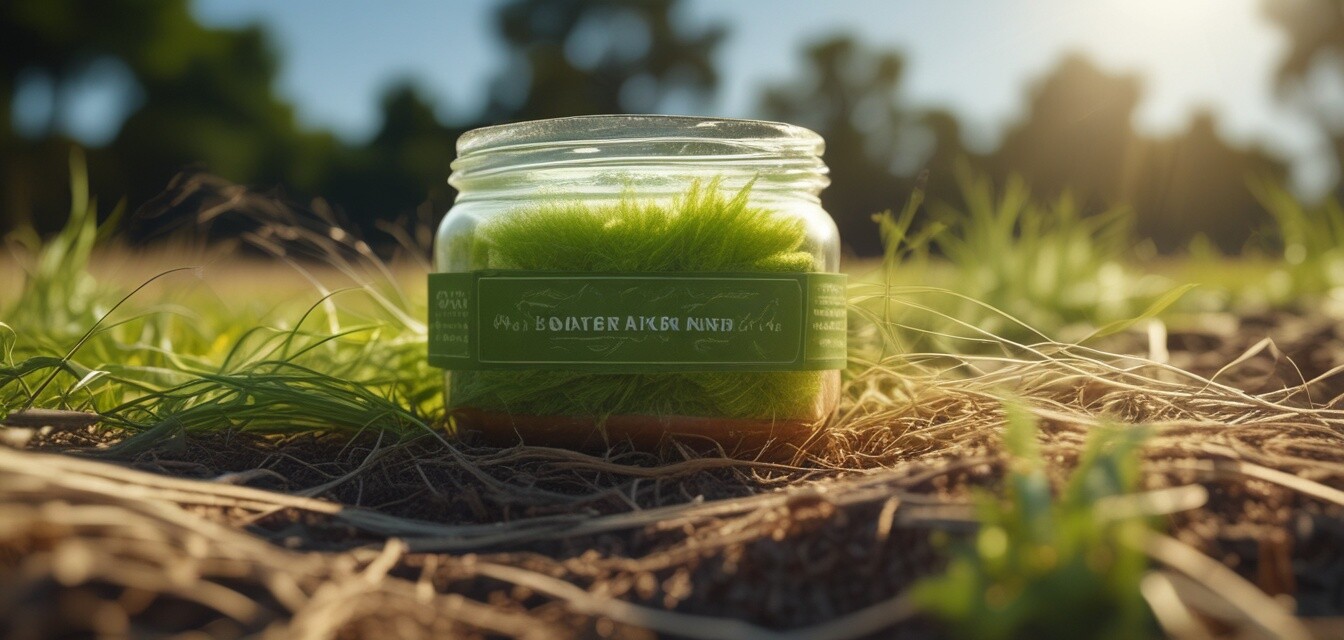
Sustainable Haircare Farming: A Growing Trend
- Sustainable farming practices are transforming the sourcing of haircare ingredients.
- Brands are adopting eco-friendly methods to support the health of the planet.
- Consumers are increasingly prioritizing sustainability in their beauty choices.
- Understanding sustainable practices can help promote ethical beauty decisions.
- Key ingredients are being sourced from regenerative agricultural methods.
In recent years, the beauty industry has seen a significant shift towards sustainability, with many brands prioritizing eco-friendly practices. One of the most impactful changes has come from the way ingredients for haircare products are sourced. This article explores how sustainable farming practices are influencing the sourcing of haircare ingredients and the broader impact on the beauty industry.
The Importance of Sustainable Farming in Haircare
Sustainable farming isn't just a trend; it represents a necessary evolution in how we approach beauty, health, and environmental stewardship. With a growing emphasis on ethical consumption, sustainable haircare farming practices are becoming vital.
Key elements of sustainable farming
Sustainable farming practices focus on maintaining ecological balance while producing high-quality ingredients. Here are some of the core principles:
- Soil health: Enhancing soil productivity through crop rotation and natural fertilizers.
- Biodiversity: Promoting a variety of crops and livestock for ecological stability.
- Water management: Utilizing efficient irrigation techniques to conserve resources.
- Pesticide reduction: Minimizing harmful chemicals by using organic pest control methods.
How Sustainable Practices Are Changing Ingredient Sourcing
As more brands focus on environmentally friendly methods, they are reevaluating their supply chains to ensure that the ingredients they use are sourced ethically. Here are some ways this shift is manifesting:
1. Transparency in sourcing
Consumers now demand transparency in where their ingredients come from. Brands are responding by providing detailed information about their sourcing practices.
2. Partnerships with local farmers
Many companies are forming partnerships with local farmers who practice sustainable agriculture. This not only ensures a higher quality of ingredients but also supports local economies.
3. Sourcing from regenerative agriculture
Regenerative agriculture goes beyond sustainability by actively improving and restoring ecosystems. Ingredients sourced from these practices can offer added benefits to both consumers and the planet.
The Rise of Eco-Conscious Consumers
The modern beauty consumer is more informed than ever. With an increasing focus on wellness, health, and ethical practices, consumers are actively searching for brands that align with their values. This has led to:
1. Demand for accountability
Shoppers want assurance that their haircare products are produced with care for the environment. Brands that prioritize sustainable farming practices can gain consumer loyalty.
2. Growth in eco-friendly branding
As a result of this demand, many brands are rebranding themselves to highlight their commitment to sustainability, including offering eco-friendly packaging and refillable products.
Comparison of Conventional vs. Sustainable Farming Practices
| Practice | Conventional Farming | Sustainable Farming |
|---|---|---|
| Pesticide use | High dependency on synthetic chemicals | Utilizes organic pest control |
| Soil management | Often neglects soil health | Focuses on soil enrichment and health |
| Water conservation | Inefficient irrigation systems | Implement water-efficient practices |
| Crop diversity | Limited crop rotation | Supports diverse crops for ecosystem health |
Popular Sustainable Haircare Ingredients
The push for sustainability has led to the rise of various ingredients known for their eco-friendliness as well as their effectiveness in haircare. Here are some popular sustainable ingredients to look out for:
- Aloe Vera: Known for its soothing properties and ability to retain moisture.
- Argan Oil: A luxurious oil with nourishing benefits, sourced responsibly.
- Coconut Oil: Widely appreciated for its deep conditioning abilities.
- Shea Butter: Offers intense hydration while being sourced sustainably.
The Future of Sustainable Haircare Farming
The future of the haircare industry lies in the hands of those who prioritize sustainable practices. As technology advances and more consumers become eco-conscious, the push for transparent, ethical sourcing will grow. Haircare brands will continue to evolve, potentially offering:
- More regenerative agricultural partnerships.
- Increased use of technology for sustainable farming practices.
- Broader access to sustainable haircare options for all consumers.
Tips for Choosing Sustainable Haircare Products
- Check for certifications such as organic or cruelty-free.
- Research brands to see their sourcing practices.
- Opt for products with eco-friendly packaging.
- Look for refillable options to reduce waste.
Conclusion
In conclusion, sustainable haircare farming is not just a choice, but a necessary shift that reflects a growing responsibility toward our planet. As awareness increases, both consumers and brands will continue to embrace sustainable practices, marking a positive transformation in the beauty industry. Embracing these practices not only benefits your hair but also contributes to healthier ecosystems. To learn more about eco-friendly brands and sustainability in haircare, visit our Sustainability in haircare category.

